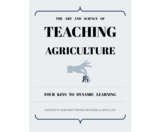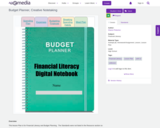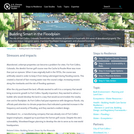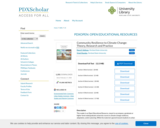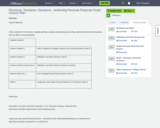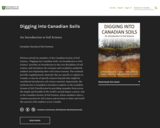The Art and Science of Teaching Agriculture: Four Keys to Dynamic Learning is a 240-page methods of teaching book. Specifically, it is a collection of thoughts, best practices, strategies, and techniques for planning, delivering, and assessing teaching and learning. This resource is assembled from among the best teaching professors in agricultural communication, education, and leadership in America. The authors offer the opportunity to build confidence in planning, delivering, and assessing the depths of the variables inherent in learning for secondary and postsecondary educators in both formal and nonformal educational environments.
You will quickly grasp the four fundamental keys of solid, basic, time-tested formal and nonformal teaching: Laying the Foundation, Connecting with Students, Designing Instruction, and Applying Learning. These keys are shared with you through the unique voices of the authors to provide a multiperspective approach to teaching.
Are you reviewing or adopting this book for a course?
Please help us understand your use by filling out this form: https://bit.ly/teachagriculture_interest.
How to access this book
The main landing page for this book is https://doi.org/10.21061/teachagriculture.
The open textbook is freely available online in multiple formats, including: PDF, ePub, and Pressbooks (https://pressbooks.lib.vt.edu/teachagriculture)
A paperback print version (in color) is available for order here: https://www.amazon.com/Art-Science-Teaching-Agriculture-Learning/dp/1957213663.
ISBNs
ISBN (PDF): 978-1-957213-71-2
ISBN (Pressbooks): 978-1-957213-72-9
ISBN (EPUB): 978-1-957213-70-5
ISBN (print): 978-1-957213-66-8
Table of contents
The Discipline of Agricultural Education
Psychology of Learning
Principles of Teaching and Learning
Learning as Problem Solving
Inclusive Teaching
Dynamics of Teaching
Planning for Effective Instruction
Delivering Content With Technology
Assessing Agricultural Education
Applied Leadership Development through FFA
Supervised Agricultural Experiences
Effective Use of the Agriculture Laboratory Environment to Support Student Learning
Suggested citation
Whittington, M. Susie, Rick Rudd, and Jack Elliot, ed. (2023). The Art and Science of Teaching Agriculture: Four Keys to Dynamic Learning. Blacksburg: Virginia Tech Department of Agricultural, Leadership, and Community Education. https://doi.org/10.21061/teachagriculture. Licensed with CC BY NC 4.0 (https://creativecommons.org/licenses/by-nc/4.0/deed.en).
View errata: https://bit.ly/teachagriculture_errata
Report an error: https://bit.ly/teachagriculture_errors
Accessibility
Virginia Tech is committed to making its publications accessible in accordance with the Americans with Disabilities Act of 1990. The Open Education Initiative is committed to continuous improvement regarding accessibility. The text, images, headings, and links in the PDF and HTML versions of this text are tagged structurally and include alternative text, which allows for machine readability. Please contact openeducation@vt.edu if you are a person with a disability and have suggestions to make this book more accessible.
Illustration and cover design: Kindred Grey

